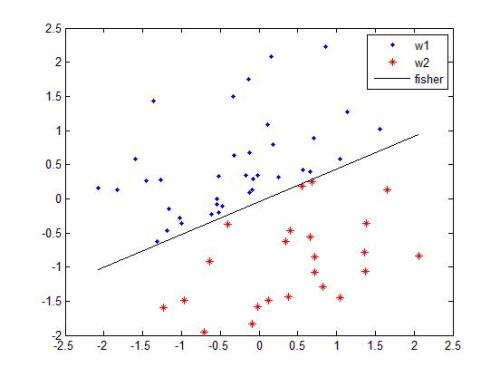The prototypical network is a prototype classifier based on meta-learning and is widely used for few-shot learning because it classifies unseen examples by constructing class-specific prototypes without adjusting hyper-parameters during meta-testing. Interestingly, recent research has attracted a lot of attention, showing that training a new linear classifier, which does not use a meta-learning algorithm, performs comparably with the prototypical network. However, the training of a new linear classifier requires the retraining of the classifier every time a new class appears. In this paper, we analyze how a prototype classifier works equally well without training a new linear classifier or meta-learning. We experimentally find that directly using the feature vectors, which is extracted by using standard pre-trained models to construct a prototype classifier in meta-testing, does not perform as well as the prototypical network and training new linear classifiers on the feature vectors of pre-trained models. Thus, we derive a novel generalization bound for a prototypical classifier and show that the transformation of a feature vector can improve the performance of prototype classifiers. We experimentally investigate several normalization methods for minimizing the derived bound and find that the same performance can be obtained by using the L2 normalization and minimizing the ratio of the within-class variance to the between-class variance without training a new classifier or meta-learning.
翻译:现代网络是一种基于元学习的原型分类器,它被广泛用于微小的学习,因为它通过在元测试期间不调整超参数而建立特定类原型,从而对看不见的范例进行分类。有趣的是,最近的研究吸引了许多人的注意,表明培训一个新的不使用元学习算法的线性分类器可以与原型网络相比。然而,培训一个新的线性分类器需要每次出现新类时对分类器进行再培训。在本文中,我们分析原型分类器如何在不训练新的线性分类器或元性学习的情况下同样运作良好。我们实验发现,直接使用特性矢量是直接使用,这是通过使用标准的预培训模型在元测试中建立原型分类器而得出的,没有像培训前型网络那样运行,也没有对新线性分类师进行类似的比较。因此,我们为原型分类师设计了一个新型的概括,并表明原型矢量矢量的转换可以改善原型分类师的性能。我们实验性地研究一些常规化方法,以便将所学得的常规化方法在不产生最大程度上进行。




